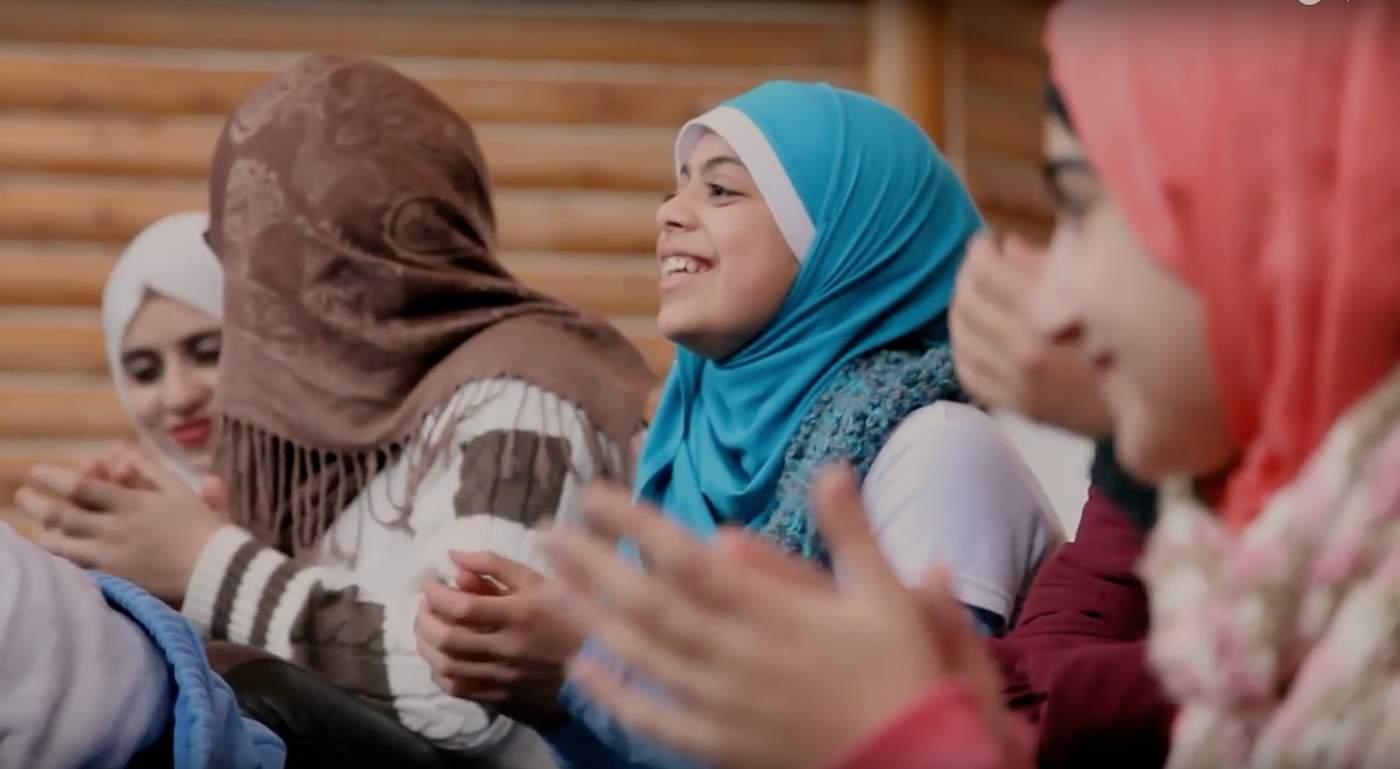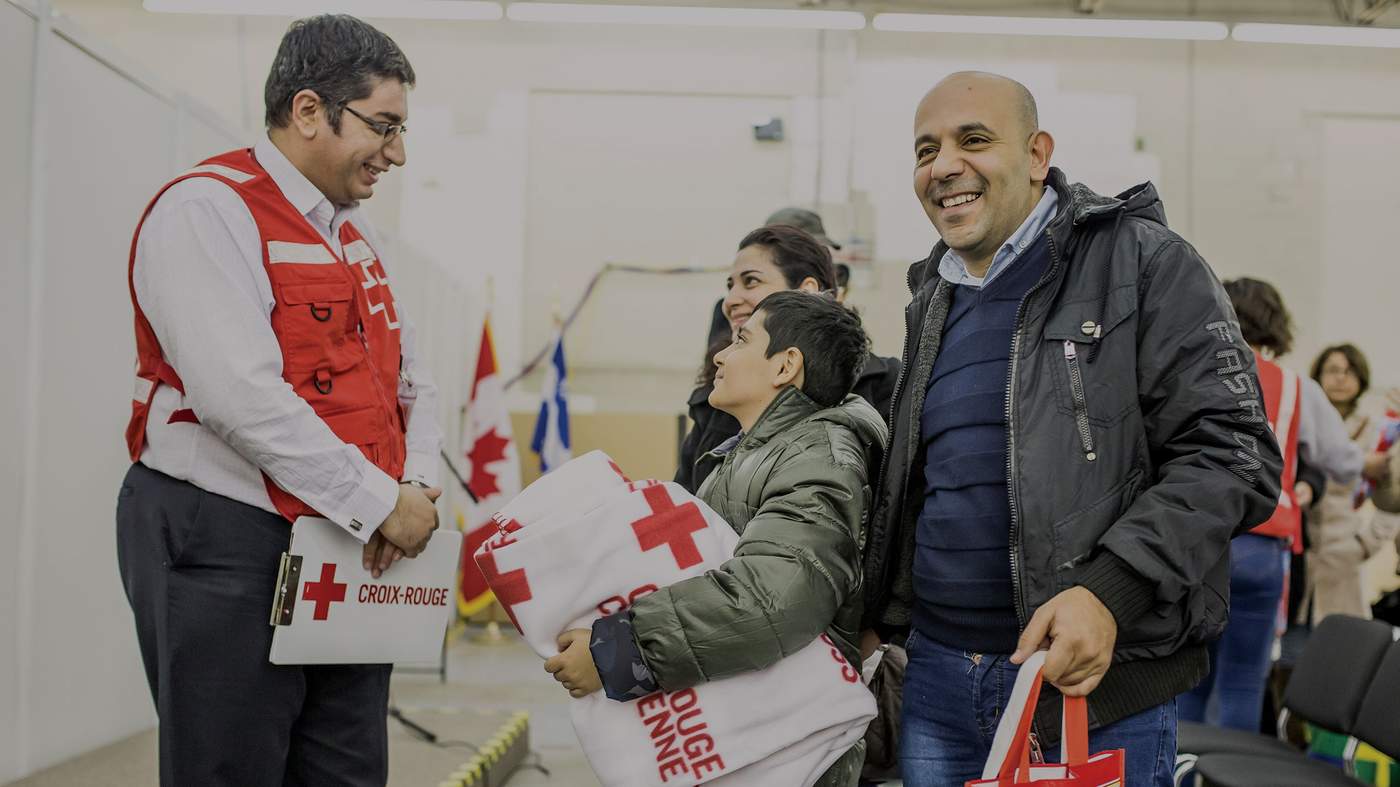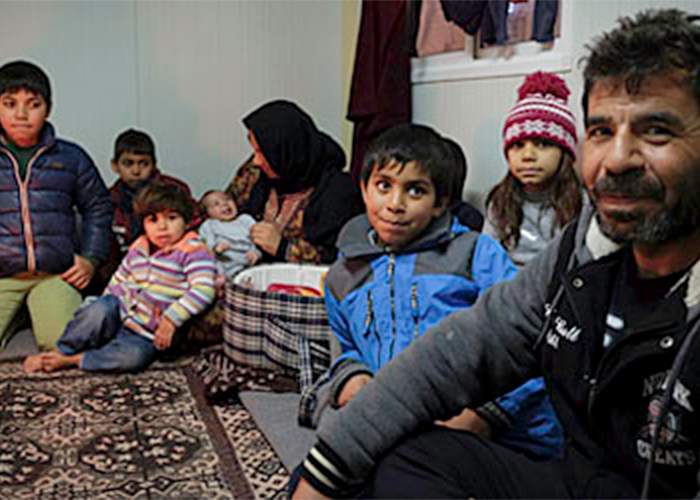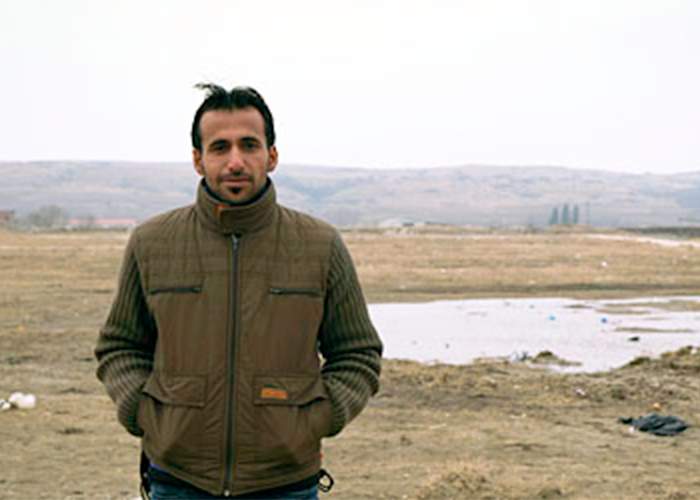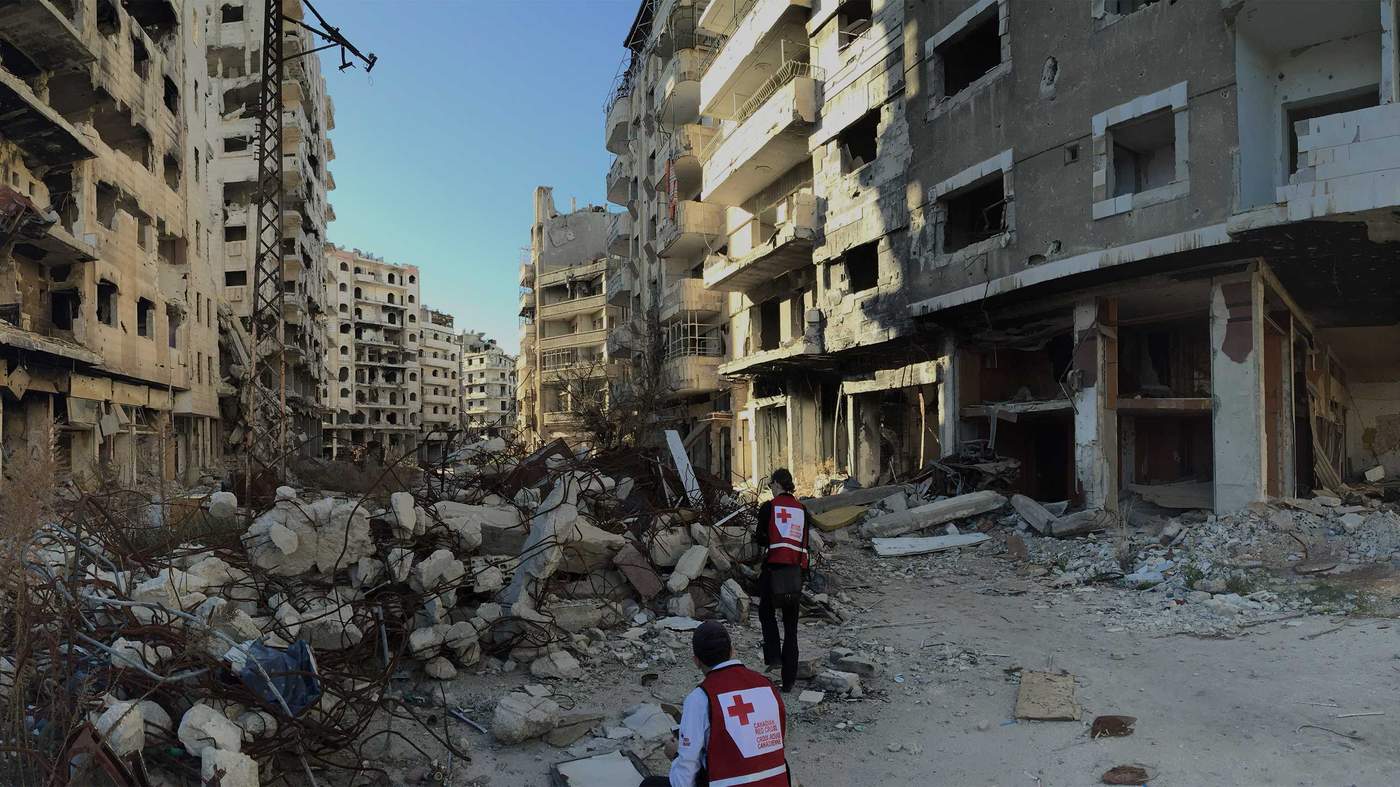March 2017 marks the sixth year of the Syria Crisis. Six years that have devastated a nation, its people and its children. The quest for safety has forced over half of all Syrians from their homes since 2011. More than 6 million are internally displaced and over 4.9 million registered as refugees in neighbouring countries. Nearly 1.2 million Syrians have applied for asylum in Europe.
Between November 2015 and January 2017, more than 40,000 Syrian refugees arrived in Canada. In October 2016, the Canadian Red Cross teamed up with the Tim Hortons Children's Foundation to give a group of Syrian refugee youth what many would consider a quintessentially Canadian experience: a sleepover camp.
Ninety Syrian teens and 10 interpreters travelled from across Atlantic Canada to the Tim Horton Children's Camp in Tatamagouche, Nova Scotia. The plan was to provide Syrian refugee youth a chance to connect with other youth throughout the Maritimes while participating in team-building activities that would help them gain confidence and provide emotional healing.
On the shores of Northumberland Strait, these Syrian newcomers learned a lot about Canada and a lot about themselves. These are some of their stories.
Meet the Campers
Anna
It’s been a challenging year in general.
Music is very important to me. I’ve been playing [piano] since I was young. I took lessons in Syria with a teacher. I’d like to buy a piano someday here in Canada because I left my piano in Syria.
Music is a really good thing. It’s about life, and emotions and feelings.
Mohamad & Fred
I never thought I’d make it to Canada, but I’m here now and I’m really happy.
I cannot express how much I think this camp gave these kids the chance to just be kids! They did not need to think of wars, or bombs, or hunger, or soldiers, or the horrors some of them have had to see and experience in their own country and on their journey here.
They had a safe environment to laugh, hang out with other kids, bond, exercise and take part in some really cool activities like archery and rock climbing.
I think the most rewarding thing for me, as a father of two kids myself, was just to see these kids running around playing and laughing with each other, safe in their new country.
Masa & Yasser
We’ve been here for about eight or nine months. Before Canada we were in Jordan for three years.
When we got the call about coming to Canada my phone was on silent but I was holding it in my hand. If I hadn’t been holding it, I would have missed the call. I wouldn’t be in Canada now.
One of the things I like the most about Canada is the diversity. In my school there are a lot of different nationalities and I get a chance to meet them and learn about cultures and languages. I’m so interested in languages.
Tamara
Opening our country to newcomers is the greatest way to help kids from all over the world to just be kids.
Through games, classes, and eating together, the kids were mainly just enjoying their time, but most importantly they were learning to listen to others, take turns, how to interact with people they just met, and how to follow rules and appreciate each other.
Many of the younger campers told me ‘When I grow up and there's an opportunity like this, I would love to volunteer like you Tamara and help out to share my experience and say that once I was in your situation.’ They are definitely appreciative of everything the Tim Hortons camp and the Canadian Red Cross and Canada has done for them, and just by hearing their thoughts, I expect them to be great Canadian citizens when they grow up.
They're excited about growing up and investing their time the same way we do, just to volunteer and help others within the community.
Alaa
Leaving Syria was so hard. I can’t explain that.
Here is safe.
All I knew about Canada before was that the winter is so cold.
I’m enjoying school here. I’m learning French and English at the same time. That’s so good!
Zaid
That was my first time climbing. I was scared but I was really happy. I was looking down and I was speechless.
When the first flight of Syrian refugees arrived in Montreal on December 12, 2015, Ghassan Brax was one of the many Red Cross staff and volunteers on hand to give them a warm greeting.
It was a particularly special moment for Ghassan, who was asked to deliver the first welcome speech. As a young boy, Ghassan had come to Canada with his family from Lebanon - leaving on the last flight out of Beirut before the airport was bombarded.
As he greeted the Syrian families, Ghassan saw a boy the same age as he was when he arrived in Canada. Taking a few extra moments, Ghassan gave him some words of comfort.
“There was a young boy, probably around 10 years old, he was looking around everywhere,” Ghassan said. “I told him that it would be difficult in the beginning. But I said not to worry, it would get easier with time, and that everything would be okay.”
That weekend, Red Cross volunteers and employees were on hand at the Welcome Centre in Montréal to help 161 men, women and children as they received warm clothes, food, and hygiene items just prior to meeting with their sponsors. For some, it was an emotional reunion, as they embraced loved ones that have not been seen in many years.
Exhaustion and tears were turned into smiles full of relief and hope.
Our Collective Impact
- 11,012 Syrian refugees supported by the Red Cross at the Welcome Centre in Montreal
- 75,546 basic items distributed, including winter clothing, comfort kits, calling cards and teddy bears
- 2,954 refugee children participated in play, recreational or educational activities while being supported at interim hotel lodging sites
- 843 Syrian refugees received physical examinations
- 477 transportation rides provided to and from medical appointments
- 35 projects through partnerships with community organizations
- 3,900+ Syrian refugees being supported through integration projects
- 1,500+ Syrian refugee children and youth participating in recreational activities
Photo credit: Jan-Prawdzik, CBSA
"In the midst of conflict, humanity is too often abandoned."
During the past 60 years the main victims of war have been civilians. The protection of civilians during armed conflict is therefore a cornerstone of international humanitarian law (IHL). This protection extends to their public and private property. IHL also identifies and protects particularly vulnerable civilian groups such as women, children and the displaced.
The protection of civilians extends to those trying to help them, in particular medical units and humanitarian or relief bodies providing essentials such as food, clothing and medical supplies. The warring parties are required to allow access to such organizations. The Fourth Geneva Convention and Additional Protocol I specifically require belligerents to facilitate the work of the International Committee of the Red Cross.

Peter Maurer
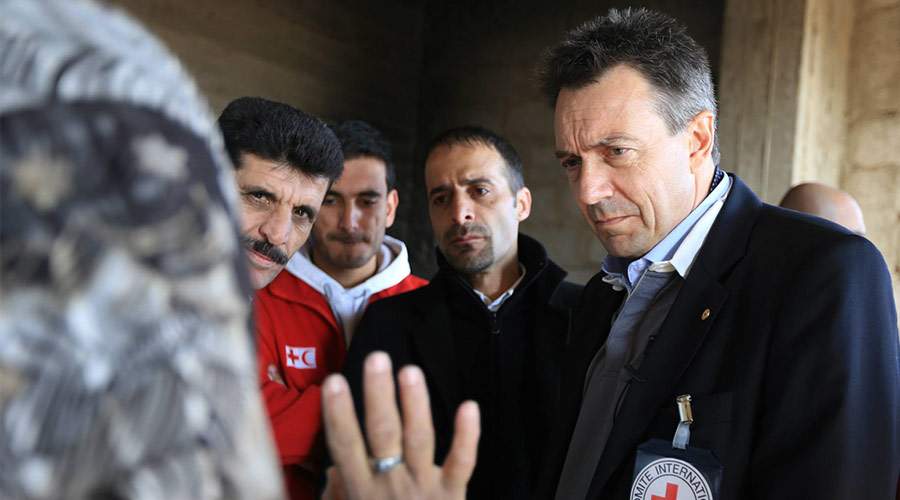
Peter Maurer, President of the International Committee of Red Cross
“In the midst of conflict, humanity is too often abandoned. But in the midst of conflict, there is also hope, immense compassion and solidarity, which makes it possible to imagine and work towards a different era.”

Marianne Gasser
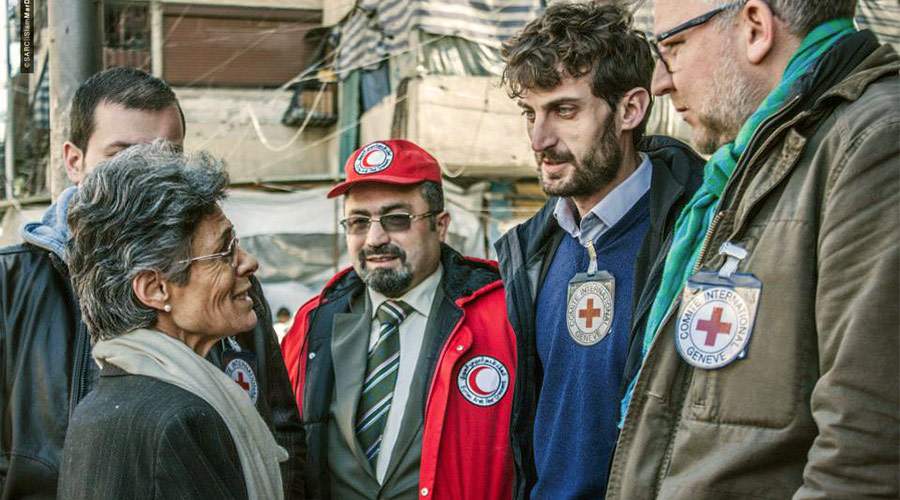
Marianne Gasser, head of the ICRC delegation in Syria
“There can be no justification for these appalling acts of violence. Deliberately targeting hospitals and clinics, which are prohibited under international humanitarian law. People keep dying in these attacks. There is no safe place anymore in Aleppo. Even in hospitals.”

Conrad Sauvé
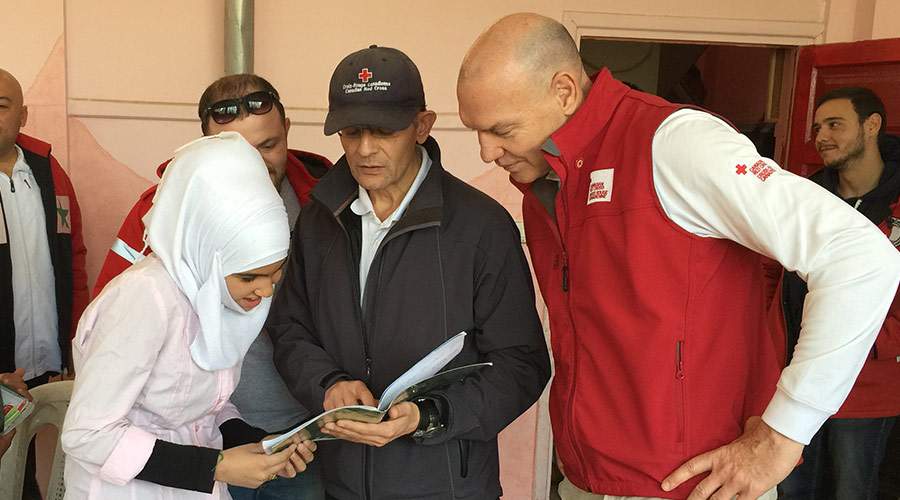
Conrad Sauvé, President and CEO of the Canadian Red Cross
“It is important to recall also that even wars have limits. There are rules in the Geneva Conventions that prohibit starving civilians as well as denying them the basic necessities for survival. It is also off-limits to attack humanitarian aid workers.
Despite these clear rules, providing aid in this conflict has been disturbingly dangerous. Since the beginning of the conflict, over 55 Red Crescent aid workers have lost their lives while providing assistance to people in need.”

Mohamed Khadra
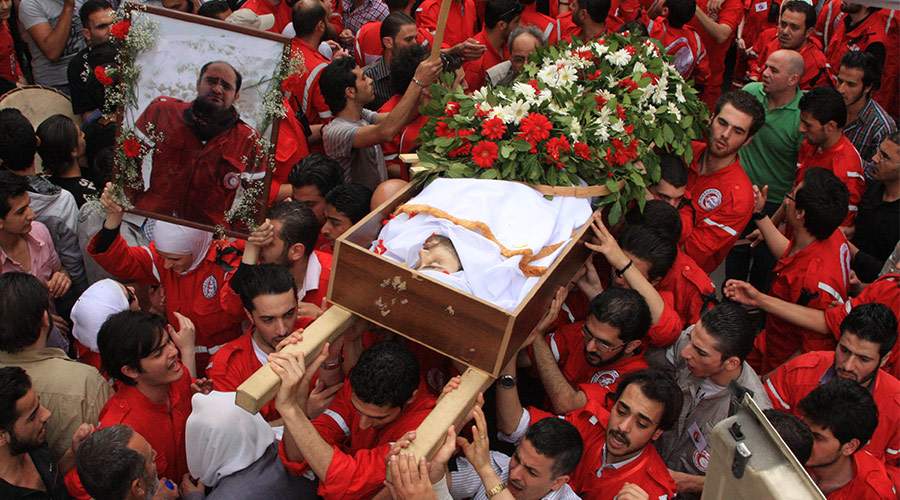
On April 24, 2012, Mohammed Khadra, a Syrian Arab Red Crescent first aid volunteer was killed while working to save the lives of others in Douma, near Damascus. Photo: Ibrahim Malla / SARC
The funeral of Syrian Arab Red Crescent volunteer first-aid worker Mohammad Khadraa, killed in Douma while working in a clearly marked SARC vehicle in April. Showing incredible bravery, SARC volunteers and staff have been on the front line, recovering wounded, performing on-the-spot first aid, handing out food and medicines to people in desperate need.

Milica Dukic
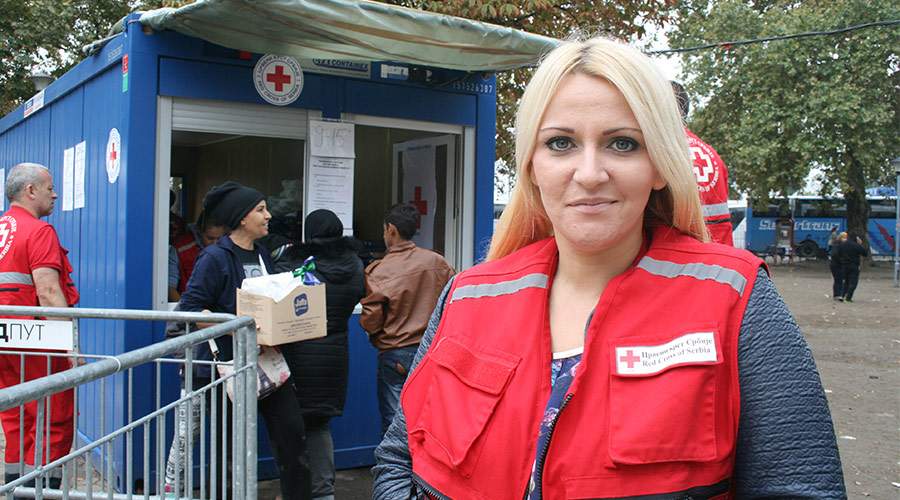
Milica Dukic, former refugee and Red Cross of Serbia volunteer
“I know why these people are fleeing. When we fled our country, I was terrified. The Red Cross volunteers played with us. For me, the Red Cross means good people - smiles, hugs and help.”

Rami Sarakbi
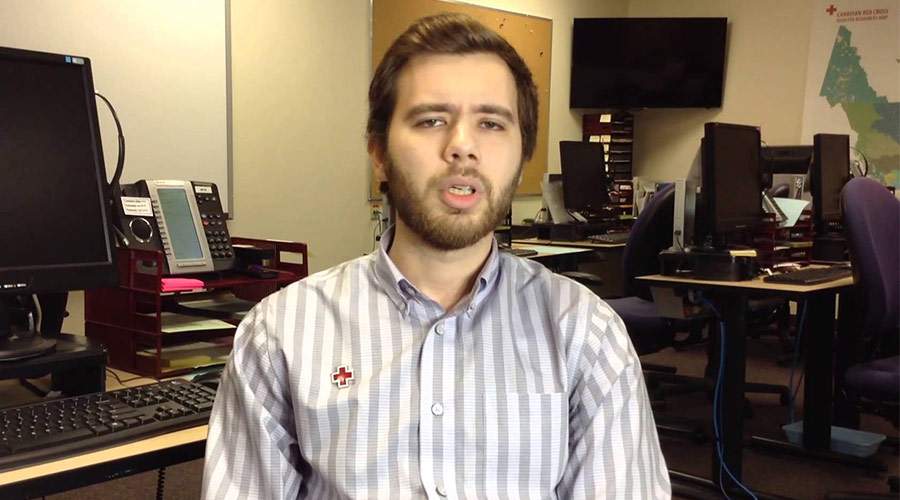
Rami Sarakbi, Canadian Red Cross aid worker
“The days were very long, we saw an average of a thousand refugees coming in every night. Some of the stories were very traumatic. One of the most touching moments was talking to a man who said to me, ‘This is the first time I felt hope in weeks – was when I saw your face.' He had lost his whole family. Meeting someone like that, it gives you a lot of perspective.”

The people of Syria need your help
Six years of violence has brought death and destruction to Syria.
Millions of people have been forced from their homes or have fled the country. Many of them are children.
In spite of the dangers, the Syrian Arab Red Crescent continues to work daily, with unparalleled access, to alleviate suffering across Syria. The Canadian Red Cross continues to support SARC in providing essential health care, medicines and medical supplies to those most affected by the crisis.
But the scale of the crisis is greater than anything the Red Cross and Red Crescent has faced in the last 15 years.
We must do more. With your help, we can.
Support the Syria Crisis Fund today.
Stay Informed & Stay Connected
Sign up to receive communications from the Red Cross that will keep you up to date with our work.
Credits
Canadian Red Cross Tim Hortons Camp Videos: Produced by A for Adventure
Photos: Canadian Red Cross, Syrian Arab Red Crescent, International Committee of the Red Cross, International Federation of Red Cross and Red Crescent Societies, IRCC, CBSA
Thank You
The Canadian Red Cross would like to thank generous individuals, governments and corporate and community partners for their financial support of our continued work within Syria and with those affected by the Syria Crisis.

